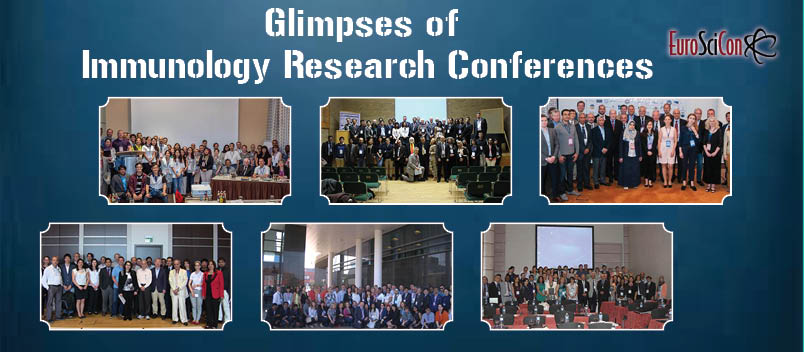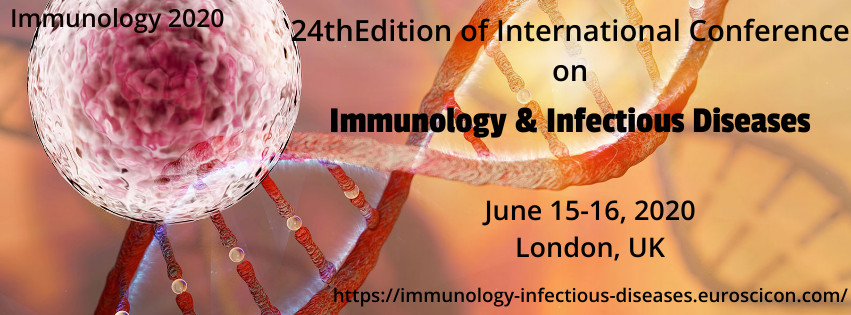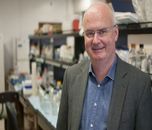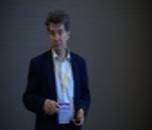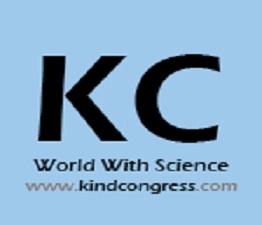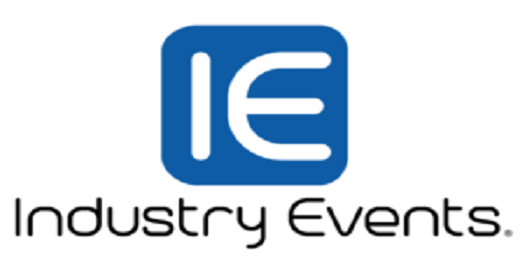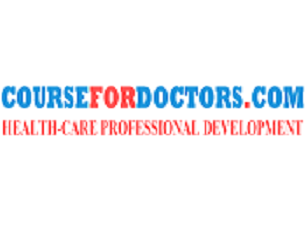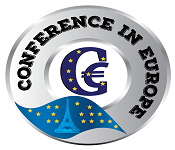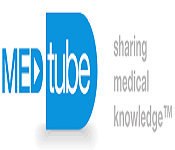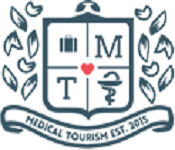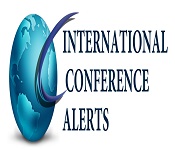IMMUNOLOGY RESEARCH 2020
About the Conference
The EuroSciCon takes pleasure of announcing 24th Edition of International Conference on Immunology and Infectious Diseases from June 15-16, 2020 at London, UK. The theme of this year’s meeting is “Exploring the human immune system & Infectious Diseases" which provides an international platform for discussion of present and future summons in Advancements of immunology in curing the deadly infectious diseases, expertise meeting and review of research. World-leading Immunologists, Microbiologists, Biochemists, Scientists, Doctors and Doctorates will present cutting-edge and practical immunological techniques and methods with accepted evidence and will introduce new and emerging research.
What’s New
Immunology Infectious Diseases 2020 is the perfect platform for the interaction among specialists, directors, professors, medical, surgical, miscellaneous faculties, experts, scientists, reputed research institutes, universities and medical schools and mainly accelerating the scientific discoveries in the field of Immunology and Infectious Diseases around the world.
About Venue
London is the capital city of England and the United Kingdom, and the biggest city, urban zone and metropolitan range in United Kingdom, and the European Union by most measures. Situated on the River Thames, London has been a noteworthy settlement for two centuries.
London also known as cultural Capital of the World, is one of the leading global cities, the money market of United Kingdom, with assets in the Arts, business, training, amusement, fashion, finance, social insurance (Health Care), media, Research & Development, tourism and transport all adding to its distinction. London is the most visited cities in the world.
London has diverse range of people and cultures more than 300 dialects are spoken within its borders. London has four World Heritage Sites: The Tower of London, Kew Botanic Garden, the Palace of Westminster and St Margaret’s Church. The other attractions include National Maritime Museum, The memorable settlement of Greenwich Observatory, Buckingham Palace, Tower Bridge, St. Paul’s Cathedral, Trafalgar square, London eye, Piccadilly Circus and many more. Mostly like southern Britain, London has a mild maritime climate. Winters are for the most part Chilly and cool with snow more often. Snow normally happens around four or five times each year generally, from December to February.
Global Immunology Market to Reach $74.2 Billion By 2022
The complexity of the immune system has led to some intrinsic obstacles with clinical research, particularly in relation to targeting the right genes, identifying the appropriate patient population and accessing internal tissues for testing. Market access presents a significant hurdle for immunotherapeutic procedures, as many are high cost and do not deliver the measurements required for traditional cost-effectiveness assessments. Despite these restraining factors, The Global Immunology Market is expected to experience continued growth, from $61.5 Billion in 2015 to $74.2 Billion in 2022, at 2.71% CAGR.
Summary
Immune-mediated deadly infectious diseases are a very common set of chronic disorders that affect 5–7% of world populations. Although they are often disparate in terms of their symptoms and key patient demographics, they are pathophysiological linked, being characterized by disregulation of immune pathways and an inappropriate immune response. Generally, disease-modifying anti-rheumatic drugs, a highly generalized class of systemic small-molecule-based agents, are used in the first-line treatment of these diseases. These are supplemented in many cases by shorter-term glucocorticoid therapy, another class of highly generalized systemic agents.
However, these therapies often fail to elicit an adequate response; a large second-line therapy has emerged in markets, beginning with the approval of Remicade and Enbrel in 1998. This segment largely consists of premium systemic monoclonal Antibodies that are highly commercial and successful with their widespread usage and high cost. Though the patents for many of these mAbs are being expired during the forecast period, the market is expected to experience continued growth.
Scope
Though the patents for these mAbs are being expired during the forecast period, the market is expected to experience continued growth, from $61.5 billion in 2015 to $74.2 billion in 2022, at a compound annual growth rate of 2.71%.
- What factors are driving the market growth?
- How can the factors limiting growth are overcome?
- Very large pharmaceutical pipeline for immunology, consisting of 1,838 active products is being developed. However, the commercial performance of the products in the late-stage pipeline is expected to be moderate.
- What gaps in the market are being addressed by the most promising of these late-stage pipeline products?
- Several key commercially successful products, including Humira (adalimumab) and Remicade, are due to lose patent protection in the forecast period.
- How will this affect their revenues in this period?
- The key players in the market, all of which are among the top 20 pharmaceutical companies, are expected to maintain their market lead throughout the forecast period.
- What is driving this continued market dominance?
- Who will the new market players be?
Reasons to buy
This report will allow you to
- Apprehend the present clinical and industrial landscape by considering disease pathogenesis and diagnostic treatment options available at each stage of Infection
- Envisage the composition of immunology market across every indication, in terms of dominant molecule targets, highlighting the key commercial assets and players
- Analyse the pipeline of immunology and stratify its developmental stage, molecular target along with molecule type and with its granular breakdown across key indications
- Acknowledge the growth of patient epidemiology and market revenues for the immunology globally and across the key players and product types
- Laminate the market in terms of the split between generic and premium products and assess the role of product types in treating varied immunological disorders
- Identify industrial opportunities in immunology by analysing trends in licensing and co-development deals
Sessions and Tracks
Track 01: Clinical Immunology: Current & Future Research
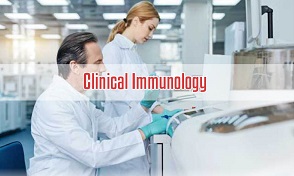
Immunology is a branch of science that covers the study of immune system in all organisms. Immunology has applications in numerous disciplines of medicine, particularly in the fields of organ transplantation, oncology, rheumatology, virology, bacteriology, parasitology, psychiatry, and dermatology. Clinical immunology is the study of diseases caused by disorders of the immune system (failure, aberrant action, and malignant growth of the cellular elements of the system). It also involves diseases of other systems, where immune reactions play a part in the pathology and clinical features.
- Immunological aspects of endocrine diseases
- Immunological techniques
- Immunological aspects of cardiac diseases
- Immune regulation
- Immunological aspects of allergy and anaphylaxis
- Immunology of HIV infections
- Immunological aspects of renal diseases
- Immune-mediated neurological syndromes
Track 02: Molecular Immunology
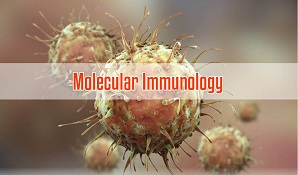
Molecular Immunology manages the comprehension of the resistant fame work and how it capacities to shield us from pathogens, similar to microscopic organisms and infections, while in the meantime regarding the innocuous or valuable microorganisms in our conditions. Different systems utilized in Molecular Immunology Antibodies counteracting agent utilize Elisa, Nephelometry and Radioimmunology.
- Immune signal transduction
- Immune calcium signals
- Immune quality control
- Immune protein folding
- Immunological secretion
- Immune endocytosis
- Immune cell motility
- Immune ion channels
- Cell stress response
- Immune cell metabolism
Track 03: Tumour Immunology
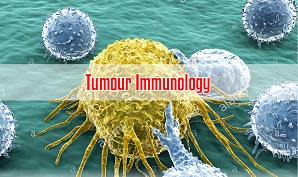
Tumor Immunology is interdisciplinary branch of biology concerned with the role of the immune system in the progression and development of cancer. The most well know application is Cancer Immune therapy whereas immune system is used to treat cancer. Cancer immunosurveillance is a theory formulated in 1957 by Burnet and Thomas, who proposed that lymphocytes acts as sentinels in recognizing and eliminating continuously arising, nascent transformed cells. Cancer immunosurveillance appears to be an important host protection process that decreases cancer rate through inhibition of carcinogenesis and maintaining of regular cellular hemostasis. It also be suggested that immunosurveillance primarily functions as a component of a more general process of cancer immunoediting.
Immunoediting induces selection for certain tumor cells, which loose dominant tumor-specific antigens allowing the tumor to progress. It has 3 main phases: elimination, equilibrium and escape.
- Carcinogenesis
- Onco-genomics
- Cancer Immunology & Immunotherapy
- Cancer therapeutic resistance
- Antitumor Effector Cells and Regulation of Tumor Immunity
- Tumor-Associated Antigen & Immunosuppression
- Mechanisms of Tumor Rejection and Modulation of Antitumor Responses
- Pathobiology of Immune System Malignancies
- Chemotherapy, Radiotherapy & Targeted therapies
- Drug Development & Vaccines
- Treatment Approaches for Cancer
- Specific / Non-specific Immunotherapies
- Immuno-Oncology studies
Track 04: Mucosal Immunology
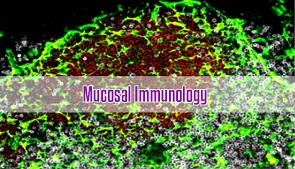
Mucosal Immunology is the study of immune system response that occurs at mucosal membrane of the intestines, the urogenital tracts and respiratory systems, i.e. surface which are contact with the external environment in healthy states, the mucosal immune system provide protection against pathogens but maintains a tolerance towards non-harmful commensal microbes and benign environmental substance. Since the mucosal membranes are primary contact point between a host and its environment a large amount of secondary lymphoid tissue is found here. The mucosa-associated lymphoid tissues or MALT provides the organism with an important line of defense.
- Gut-associated lymphoid tissue
- Mucosal Vaccination
- Mucosal Immunology of HIV Infection
- Immuno globulin A (IgA)
- Mucosal Vaccination
Track 05: Transplantation Immunology
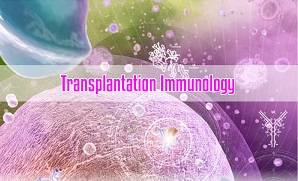
Transplantation is an act of transferring cells, tissues, or organ from one site to other. Graft is implanted cell, tissue or organ. Development of the field of organ and tissue transplantation has accelerated remarkably since the human major histocompatibility complex (MHC) was discovered in 1967. Matching of donor and recipient for MHC antigens has been shown to have a significant positive effect on graft acceptance. The roles of the different components of the immune system involved in the tolerance or rejection of grafts and in graft-versus-host disease have been clarified. These components include: antibodies, antigen presenting cells, helper and cytotoxic t cell subsets, immune cell surface molecules, signaling mechanisms and cytokines that they release. The development of pharmacologic and biological agents that interfere with the all immune response and graft rejection has had a crucial role in the success of organ transplantation. Combinations of these agents work synergistically, leading to lower doses of immunosuppressive drugs and reduced toxicity. Significant numbers of successful solid organ transplants include those of the kidneys, liver, heart and lung.
- Immunosuppressive agents: Current trends
- Tolerance induction
- Xenotransplantation
- Islet cell transplantation
- Immuno cell therapy
- Anti-donor antibodies and current research
Track 06: Neuroimmunology
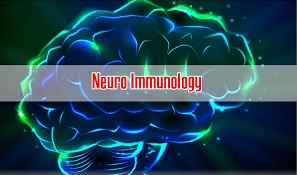
Neuroimmunology is a field combining neuroscience, the study of the nervous system, and immunology, the study of the immune system. Neuroimmunologists seek to better understand the interactions of these two complex systems during development, homeostasis, and response to injuries. A long-term goal of this rapidly developing research area is to further develop our understanding of the pathology of certain neurological diseases, some of which have no clear etiology. In doing so, Neuroimmunology contributes to development of new pharmacological treatments for several neurological conditions. Many types of interactions involve both the nervous and immune systems including the physiological functioning of the two systems in health and disease, malfunction of either and or both systems that leads to disorders, and the physical, chemical, and environmental stressors that affect the two systems on a daily basis.
- Neuro-immune interaction
- Epilepsy
- Autoimmune neuropathies
- Neuro immunological infectious diseases
- Maternal cytokines in neurodevelopmental disorders
- Neurodegenerative diseases
- Neurovirology
- Blood brain barrier and diseases
Track 07: Immunodermatology

Immuno dermatology studies skin as an organ of immunity in health and diseases. Several areas have specific attention, such as photo-immunology (effects of UV light on skin defense), inflammatory diseases such as Hidradenitis suppurativa, allergic contact dermatitis and atopic eczema, presumably autoimmune diseases such as vtiligo and psoriasis and finally the immunology of microbial skin diseases such as retrovirus infection and leprosy. New therapies in the development for the immunomodulation of common immunological skin diseases includes biological aimed at neutralizing TNF-Alfa and chemokine receptor inhibitor.
- Cutaneous Dendritic Cells in Health and Disease
- Photo immunology
- Atopic Dermatitis
- Non-melanoma Skin Cancer
- Immuno biology & Immune-Based Therapies
- Drug Eruptions
- Immuno dermatology & Viral Skin Infection
- Clinical Dermatology
- Cutaneous T-Cell Lymphoma
- Allergic Urticaria
- Alopecia Areata
- Cutaneous Lupus Erythematosus
- Pemphigoid Spectrum
- Epidermolysis Bullosa Acquisita
- Immunoglobulin Dermatitis
- Advances in Immuno-Dermatology
Track 08: Immunogenetics
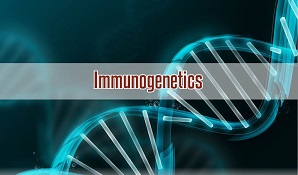
Immunogenetics is a branch of medical genetics that explores the relationship between the immune system and genetics. Autoimmune diseases such as type 1 diabetics are complex genetic traits which results from defects in immune system. Identification of genes defining the immune defects may identify new target genes for therapeutic approach. Alternatively genetic variation can also help to define the immunological pathway leading to disease. The term Immunogenetics comprises all the processes of organisms, which are on the one hand, controlled and influenced by the genes of the organism and are on the other hand significant with the regard to the immunological defense reaction of the organism.
- Immunogenetics and Pharmacogenetics
- Chronic Inflammation
- Genetic Research
- Vasculitis and Autoimmune Disease
- The Immuno genetics of Neurological Disease
- Bone involvement in Monogenic Auto-inflammatory Syndromes
- Immunoglobulin Genotypes and Cognitive functions
- Mechanisms behind TB, HBV, and HIV Chronic infections
Track 09: Vaccines and Immunization
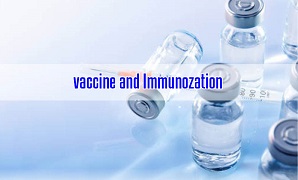
Vaccination is the administration of antigenic material (a vaccine) to stimulate an individual’s immune system to develop adaptive immunity to pathogen. Vaccine can prevent or ameliorate infectious disease. Vaccination is the most effective method of preventing infectious diseases; widespread immunity due to vaccination is largely responsible for the worldwide eradication of the smallpox and elimination of diseases such as polio, measles and tetanus from much of the world.
Immunization is the process by which individual’s immune system becomes fortified against an agent known as immunogen. When this system is exposed to molecules that are foreign to the body, called non-self it will orchestrate an immune response, and it will also develop the ability to quickly respond to a subsequent encounter because of immunological memory. This is a function of the adaptive immune system. Therefore by exposing an animal to an immunogen in a controlled way, its body can learn to protect itself this is called active immunization. Passive immunization is direct introduction to these elements into the body, instead of production of these elements by the body itself.
- Combination Vaccines and Plant Based Vaccines
- Recombinant Vector Based
- Age-specific Immune Response to Vaccination
- Therapeutic Vaccination for Auto Immune Diseases
- Vaccines against Vector-borne Diseases
- Vaccination in New-born’s, Pregnancy and the Elderly populations
Track 10: Innate Immune Responses
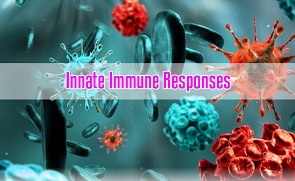
The innate immune system is one of the two main immunity strategies found in vertebrates (the other being the adaptive immune system). The innate immune system is an older evolutionary defence strategy, relatively speaking, and it is the dominant immune system response found in plants, fungi, insects, and primitive multicellular organisms.
- Anatomical Barriers lupus
- Inflammation
- Complement System
- Neural Regulation
- Immune Evasion
- Pathogen-specificity
Track 11: Immuno Research & Immunotechnology
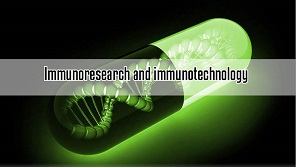
Immunology research tends to a fascinating medium for the introduction, understanding and clarification of complex sensible information. Data appears as interpretive blend diagrams, exceptional research articles, symposia, preparations and theoretical structures.
- Antibody Engineering & Technology
- Proteomics
- Antigen-Antibody Interactions
- Microarray
- Recombinant Immuno-Conjugates
- Characterization of Lymphocytes
- Immunodiagnostic & Immuno techniques
- Transcriptomics
- Immunological Assay
- Nano-Immunotechnology
- Technology Development and Applications
Track 12: Nutritional Immunology
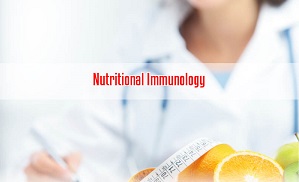
Nutritional Immunology or Immunonutrition is a newly recognized sub discipline of vast clinical and public health importance. This discipline interrelates seemingly desperate fields of Nutrition and Immunology. Despite of their apparent independence in the immune system cannot function optimally if malnutrition is present.
- Nutrient-gene interactions in the immune system
- Nutrition and immune cell signalling
- Nutrition, immunity and chronic age-related diseases
- White-brown adipocyte plasticity and inflammation
- Immune profiling in metabolic diseases
- Obesity, inflammation and immunity
- Nutrition-inflammation interactions
- Nutritional immunology old challenges & new approaches
Track 13: Reproductive Immunology
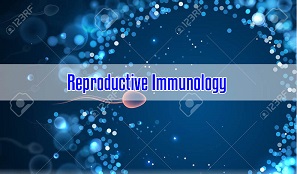
Reproductive immunology refers to a field of medicine that studies interactions (or the absence of them) between the immune system and components related to the reproductive system, such as maternal immune tolerance towards the fetus, or immunological interactions across the blood-testis barrier. The concept has been used by fertility clinics to explain the fertility problems, recurrent miscarriages and pregnancy
complications observed when this state of immunological tolerance is not successfully achieved. Immunological therapy is the new up and coming method for treating many cases of previously "unexplained infertility" or recurrent miscarriage.
- Immunological paradox of pregnancy
- Immune cells and cytokines in implantation
- Mucosal immunity and sexually transmitted infections and Diseases
- Immune-mediated sub-fertility and pregnancy complications
- Immunogenetics in reproduction
Track 14: Developmental Immunology
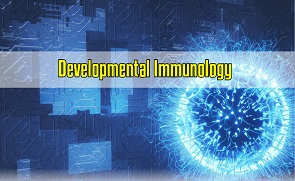
The Department of Developmental Immunology consists of two independent research groups. The immune system develops from hematopoietic precursor cells in the bone marrow. These precursors go through rounds of cell division and differentiation to give rise to the various different lymphoid and non-lymphoid lineages that go to make up the innate and adaptive immune systems.
The immunologists are investigating the origin and evolution of lymphoid organs and the adaptive immune system, the intestinal immune system, and adaptive and innate immunity with a focus on various aspects of immune tolerance. The immune system which initiates its development far before birth with in the fetus and because of which the development continues even after reaching the adulthood. The capacity to react to antigens and foreign invaders is thus dependent on: Age of the person, Type of antigen, maternal factors, Area of body.
- Human growth and development
- Phagocytosis
- Hormones regulating Immunity
Track 15: Neonatal and Paediatric immunology
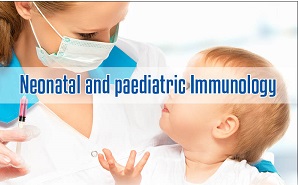
Considering the case of neonates and children where the immune system is not fully functional at birth and still developing later on, the chances of them being susceptible to infections and pathogensis high and response to vaccines is not that effective compared to adults. This could later lead to development of allergy, asthma or other immune disorders hence the care and prevention methods employed is discussed under Neonatal Immunology and Paediatric immunology. Infants receive their innate immunology through their mother either by placenta when they are in the womb or through breast milk. Immunity acquired later on by infants and kids is acquired through life. Asthma pregnancy i.e. if the mother has asthma then chances exists for children to develop allergy/ asthma. Children who get in contact with several foreign agents are prone to Paediatric Allergy.
- Fetal & Neonatal Immunology
- Paediatric Allergy
- Outdoor & Indoor Allergens
- Paediatric Asthma and Rhinitis
- Vaccination effectiveness
Track 16: Eco immunology & Behavioural Immunity
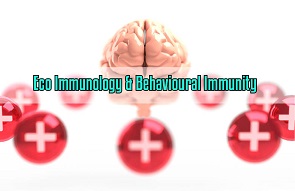
Eco immunology is an interdisciplinary field combining aspects of immunology with ecology, biology, physiology, and evolution. The field of Eco immunology, while young, seeks to give an ultimate perspective for proximate mechanisms of immunology.
The behavioral immune system is a phrase coined by the psychological scientist Mark Schaller to refer to a suite of psychological mechanisms that allow individual organisms to detect the potential presence of disease-causing parasites in their immediate environment, and to engage in behaviors that prevent contact with those objects and individuals.
- Clinical Trails
- Randomized Controlled
- Ecological Study
- Epidemiology Study
- Analysis of Clinical Trails
- Implications of Immunology
- Psychological Sciences
- Suppression Immunotherapies
Track 17: Immune Disorders
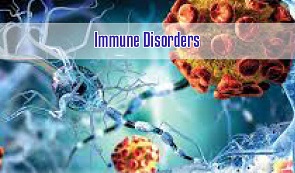
An immune disorder is a dysfunction of the immune system. These disorders can be characterized in several different ways:
- By the component(s) of the immune system affected
- By whether the immune system is overactive or underactive
- By whether the condition is congenital or acquired
According to the International Union of Immunological Societies, more than 150 primary immunodeficiency diseases (PIDs) have been characterized. However, the number of acquired immunodeficiency’s exceeds the number of PIDs. It has been suggested that most people have at least one primary immunodeficiency. Due to redundancies in the immune system, though, many of these are never detected
- Rheumatoid Arthritis
- Inflammatory Bowel Disease
- Multiple Sclerosis
- Diabetes Mellitus
- Guillain-Barre Syndrome
- Psoriasis
- Myasthenia gravis
- Vasculitis
Track 18: Diagnosis of Infection
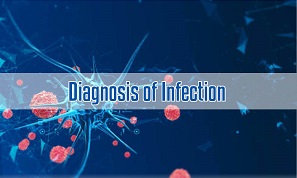
Infections are caused by disease drivers such as bacteria, viruses, fungi, and parasites. Physicians conclude an infection based on symptoms and results of physical tests. Once after confirming the person from infection to a type of illness, they should be aware of the specific infectious agent as varied microbes cause the same infection. As different infectious diseases possess similar kind of symptoms, body fluid samples, reveal the evidential causing agent of our disease.
Clinical approaches like imaging methods such as computerized tomography, magnetic resonance imaging and X-rays reveals condition of the infection. Immunological approach of testing antibody using blood sample and other body fluids of infected person are performed.
- Clinical mode of diagnosis
- Immunodiagnosis
- Molecular techniques
Track 19: Bacteriology and Infectious diseases
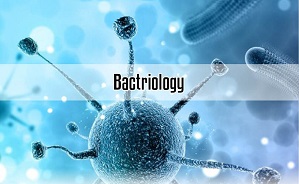
Bacteriology is the branch and specialty of biology that studies the morphology, ecology, genetics and biochemistry of bacteria as well as many other aspects related to them.
Infectious diseases are diseases caused by biological agents, which can be transmitted to others, rather than by genetic, physical or chemical agents. This definition includes disease caused by viruses, bacteria, parasites, fungi and prions. This page includes list of infectious diseases as pertains to humans; those affecting animals.
- Communicable diseases
- Bacterial defence phagocytosis, immune responses
- Antimicrobial agents- infectious diseases
- Tuberculosis and respiratory diseases
Track 20: Vector borne infectious diseases
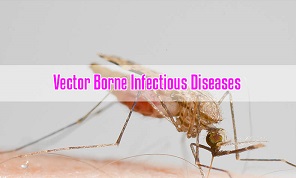
In epidemiology, a disease vector is any agent who carries and transmits an infectious pathogen into another living organism; most agents regarded as vectors are organisms, such as intermediate parasites or microbes, but it could be an inanimate medium of infection such as dust particles.
- Vector borne emergency
- Yellow fever mosquito
- Mosquito borne
- Tick borne
- Flea borne
Track 21: Virology and infectious diseases
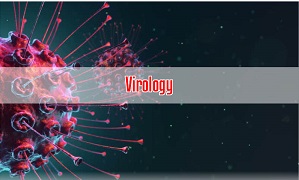
Virology is the study of viruses – sub microscopic, parasitic particles of genetic material contained in a protein coat – and virus-like agents. It focuses on the following aspects of viruses: their structure, classification and evolution, their ways to infect and exploit host cells for reproduction, their interaction with host organism physiology and immunity, the diseases they cause, the techniques to isolate and culture them, and their use in research and therapy. Virology is considered to be a subfield of microbiology or of medicine.
- Haepatology and nutrition
- Sexually transmitted virus
- Swine fever virus
- Emerging infectious diseases
Track 22: Molecular biology research and viral therapy
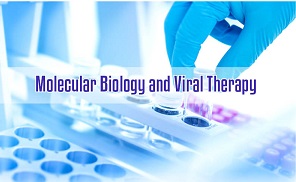
Molecular biology techniques are common methods used in molecular biology, biochemistry, genetics and biophysics which generally involve manipulation and analysis of DNA, RNA, protein and lipid.
Virotherapy is a treatment using biotechnology to convert viruses into therapeutic agents by reprogramming viruses to treat diseases. There are three main branches of Virotherapy : anti-cancer oncotic viruses, viral vectors for gene therapy and viral immunotherapy.
- Reovirus infection in mono layer and spheroid cultures of glioma cells
- Development in viral vectors for gene therapy
- Oncolytic virus therapy
- Antiretroviral therapy (ART)
Market Analysis
Infectious Disease Therapeutic Market
The global infectious disease therapeutics market size was valued at USD 46.88 billion in 2016.It is expected to grow at a CAGR of 6.6% during the forecast period. The growing frequency of infectious ailments, increasing expenditure to boost the penetration rate of treatments of these diseases, diagnosis, rising initiatives for creating awareness about treatments and increasing clinical trials are the factors responsible for growth of this market. India and China are both considered to be the fastest growing infectious diseases therapeutics markets. The major companies which play a vital role in the global infectious diseases therapeutics market are, Pfizer, Johnson & Johnson, Merck & Co., GlaxoSmithKline Pharmaceuticals, F. Hoffmann-La Roche, Inc., Auritec Pharmaceuticals, Novartis, Achillion Pharmaceuticals, Eli Lilly and Company, Isis Pharmaceuticals , Gilead Sciences and Sanofi.
Diagnostic Market Research on Infectious Diseases
The infectious disease diagnostic market is studied with respect to four regions such as North America, Europe, and Asia Pacific. Among all of these North America is dominating the whole region followed by Europe. Infectious disease diagnostic market is anticipated to grow during the forecast period owing to the increasing prevalence of various infectious diseases such as, malaria, Lyme disease, fifth disease, TB, HIV/AIDS, viral hepatitis, HAIs,MRSA, STDs and diarrheal diseases. The other vital areas of this market are growing demand of rapid diagnostic technique over existing technique due to long turnaround time and government aided funding. The different methods used for diagnosis are microbiological techniques, clinical laboratory techniques and intensive care medicine.
Infectious disease testing is often prioritised by health care companies and specialists for treating the disease as early as possible. Therefore, testing markets are be likely to to be a little less price-sensitive as compared to others.
Infectious disease diagnostic market is segmented on the basis of product, technology, and application. On the basis of technology, the market is split into, molecular and traditional diagnostic technique. The molecular diagnostic technique is classified into INAAT (Isothermal Nucleic Acid Amplification Test), Polymerase Chain Reaction (PCR), NGS & DNA sequencing, hybridization and microarrays. The traditional diagnostic technique is categorized into biochemical characterization, immunodiagnostics and microscopy. On the basis of product, the market is classified into consumables (assays and reagents), software & services, and instruments & analysers. Among these consumables held the largest market share as of 2013.
Avenues of Infectious Disease Research
Research will also be directed toward patient subgroups, including children, patients with co-infection (HIV/hepatitis or HIV/tuberculosis) and patients infected with drug-resistant forms of a disease. Pandemic preparedness is another factor that will have to be stepped up in the near future. Among vaccines, influenza has the highest market value, with growth in the next couple of years being driven by conversion to quadrivalent vaccines and immunization of the elderly population. Recent pandemics such as Ebola, Zika and influenza have highlighted the fact that no disease can be assumed to not have a global implication.
Universities related to Infectious Diseases
- University of Cambridge
- Kings College of London
- London School of Hygiene and Tropical Medicine
- Imperial College London
- UCL Institute of Epidemiology and Healthcare
- Paediatric Infectious Diseases Society
- University of Sheffield
- University of Maryland
- Swedish Institute for Infectious Disease Control
- Columbia University
- University of Gothenburg
- Oslo University
- University of Otago
- University of Pittsburgh
- Emory Health Sciences
- Uppsala University
- University of Liverpool
- University of Colorado Denver
- Queensland University of Technology
- Infectious Diseases Society of America
- Medical College of Georgia at Georgia Regents University
Learn More
Top most Immunology and Infectious Diseases Universities in World
Immunology and Infectious Diseases Universities in EUROPE:
University of Oxford | Swiss Federal Institute of Technology | University of Cambridge | King’s College London | University of Edinburgh | Swiss Federal Institute of Technology Lausanne | Vaccine Conferences | Infectious Diseases Conferences | Infection Conferences | Immunology Meetings 2019 USA | Immunology Congress 2019 Japan | Immunology Conferences | Clinical Immunology Conferences | University of Bristol | University College London | Maastricht University | Imperial College London | University of St. Andrews | The University of Manchester | Microbiology Conferences | Immunology Conferences 2019 USA | Immunology Conferences 2019 Canada | Allergy Conferences | Cancer Immunology Conferences 2019 Asia | Queen Mary University of London | Immunology Conferences | University of Liverpool | Trinity College Dublin | University of Birmingham | University of Southampton | University of Copenhagen | Newcastle University | University of Glasgow | University of Geneva | University of Zurich | Queen’s University Belfast | University of Groningen | Cardiff University | Technical University of Munich | University College Dublin | University of Warwick | University of Nottingham | University of York
Immunology and Infectious Diseases Universities in USA:
Harvard University | University of California | Johns Hopkins University | Washington University in St. Louis | Yale University | Rockefeller University | University of Oxford | Massachusetts Institute of Technology | Immunology Conferences | Clinical Immunology Conferences | University of Pennsylvania | University of Washington | Stanford University | Emory University | Columbia University | Duke University | University of California |
EuroSciCon hosted the “23rd Edition of International Conference on Immunology and Infectious Diseases” during April 29-30, 2019, London, UK at Radisson Inn Hotel with the theme “Revolutionary advanced research on Immunology and Infectious Diseases”. Benevolent response and active participation were received from the renowned experts and Editorial Board Members of EuroSciCon Journals as well as from the Immunologists, Scientists, Researchers, Students and Leaders in Immunology, who made this event successful.
The conference was carried out through various informative and cutting-edge sessions, in which the discussions were held on the following thought-provoking scientific tracks:
The conference was embarked with an opening ceremony followed by a series of lectures delivered by both Honourable Guests and members of the Keynote forum. The adepts who promulgated the theme with their exquisite talk were:
· Huang Wei Ling, Medical Acupuncture and Pain Management Clinic, Brazil.
· Shirin Tarafder,Associate Professor, Department of Microbiology and Immunology, Bangabandhu Sheikh Mujib Medical University, Dhaka, Bangladesh
All the above mentioned Honourable Guests and Keynote speakers gave their energetic and fruitful contributions. Special thanks to our Moderator, Frederic J. DESCHAMPS, Department of occupational health Reims – France for his remarkable contribution towards smooth functioning at Immunology Research 2019.
Conference Sessions Chairs:
· Huang Wei Ling, Medical Acupuncture and Pain Management Clinic, Brazil.
EuroSciCon offers its heartfelt appreciation to Societies and Organizations, is also obliged to the Organizing Committee Members, Adepts of Field, Various Outside Experts, Company Representatives and other eminent personalities who supported and led the event to the path of success.
Your rejoinder is our inspiration, keeping this motto in mind and being witnessed the triumph of Immunology Research 2019, EuroSciCon Ltd is delighted to announce the next event. Mark your calendars for the upcoming extravaganza, “24th Edition of International Conference on Immunology & Infectious Diseases ” to be held during June 15-16, 2020 at London, UK.
Let us meet again @ Immunology Infectious Diseases 2020Past Conference Report
